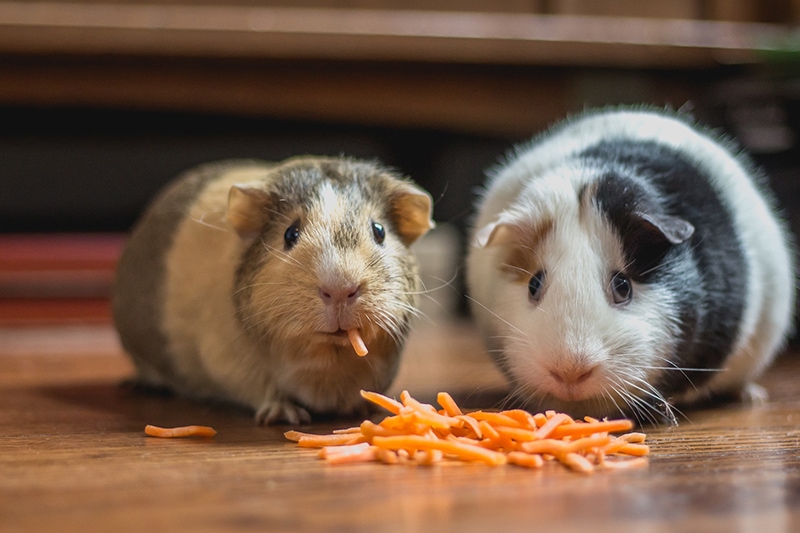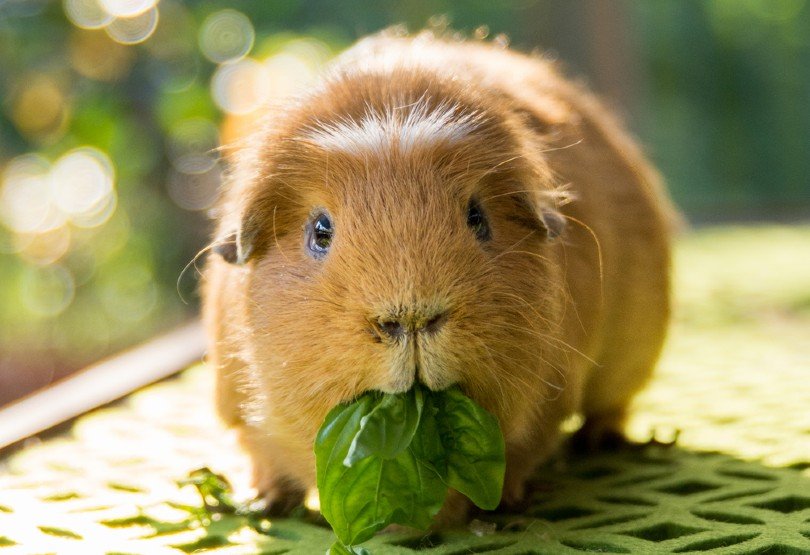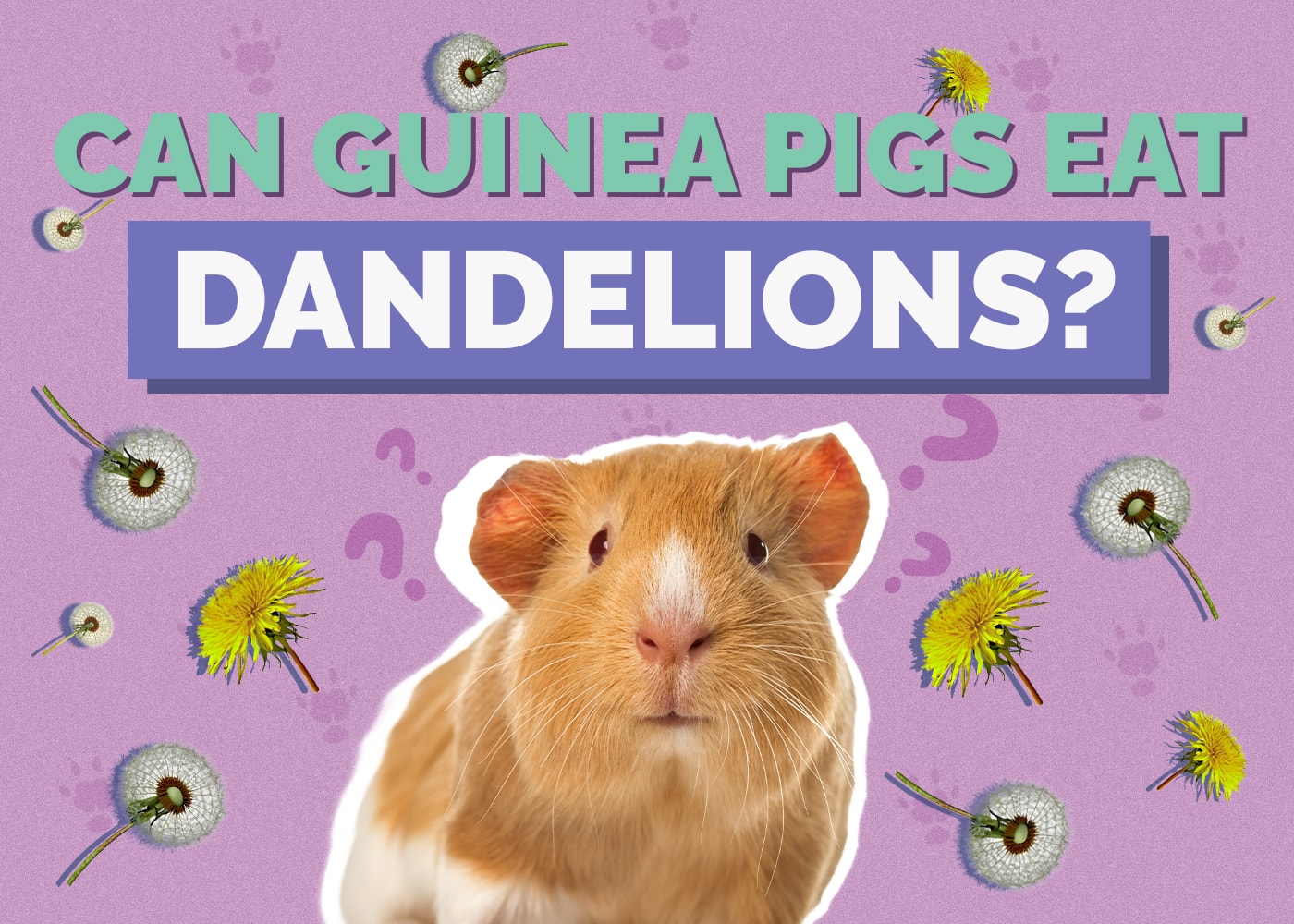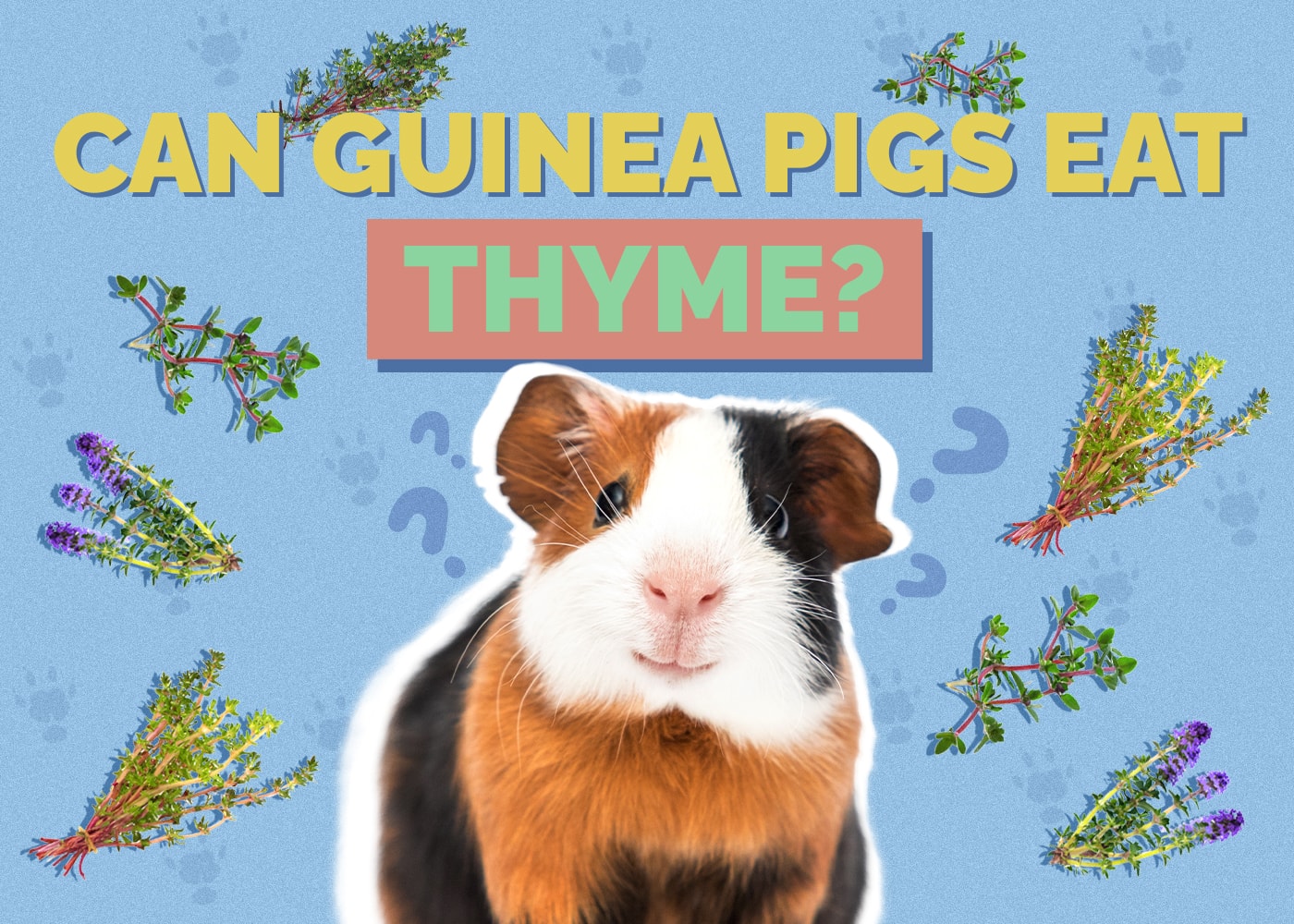How Long Can Guinea Pigs Go Without Food or Water? Vet-Reviewed Nutritional Information

Updated on

Guinea pigs like to pig out! It’s generally recommended that you give them constant access to hay and fresh water. Unlike some pets, guinea pigs aren’t usually in danger of overeating. In fact, they’re designed to be foraging pretty much constantly.
They should be given an unlimited supply of grass and fresh water. But if your guinea pig has to go without food or water, or if they get sick and stop eating, how soon would they be in trouble? The answer is fast. Guinea pigs can have health complications after about 6 to 8 hours without eating or 8 to 10 without drinking. Here’s a little more info about why guinea pigs need food and water so much.
Constant Munchers
Guinea pigs, also known as cavies, are herbivores that should have a diet of about 80% grass and hay. They have a very different digestive system than us, one that’s designed for constant munching. When your piggie is awake, they will spend a good chunk of their time eating. That means your guinea pig doesn’t sit down for three square meals a day. The average amount of time it takes food to leave their stomach (after it is eaten) is around 2 hours.

If your guinea pig stops eating, they’ll be in big trouble even before they start starving. If they do not receive enough fiber, they might suffer from subclinical gut hypomotility. After only 6 to 8 hours without food, your piggie is at risk of gastrointestinal stasis. GI stasis occurs when a guinea pig’s digestion slows down, causing serious pain and life-threatening complications if left untreated 1. Not all guinea pigs will go into GI stasis right away, but signs can come on suddenly at any time.
It’s also important to feed your cavy a balanced diet. Guinea pigs eat hay for most of their diet, but hay is short in essential nutrients like vitamin C. You’ll want to supplement it with vegetables and pellets that help fill in the gaps to guard against illness and malnutrition.
- Appetite decrease
- Fecal changes (diarrhea, lack of feces, dry feces)
- Lethargy
- Signs of pain (hunched posture, grinding teeth)
- Decreased activity
Guinea Pig Dehydration
If your guinea pig goes too long without water, they will become dehydrated. After around 12 hours without water, your guinea pig will show clinical signs of dehydration. However, it is important to note that the health consequences of dehydration set in before the signs of dehydration present themselves.
Although they can survive up to one day without water, they will have serious side effects. Watch out for signs of dehydration if you think your guinea pig is drinking less than normal.
- Lethargy
- Unkempt appearance
- Thick saliva
- Crusty eyes
- Appetite loss
- Dark, smelly urine
- Dry, hard feces

Why Did My Guinea Pig Stop Eating?
Guinea pigs stop eating for a variety of reasons. Dental pain is one of the most common causes of food avoidance. Stress from a new environment or poor living conditions can cause appetite loss. Many different diseases can cause a loss of appetite. In addition, poor nutrition can lead to GI stasis, which can, in turn, lead to appetite loss. Guinea pigs are neophobic, which means they are scared of new things, including foods they aren’t familiar with. A guinea pig offered food they haven’t seen before may simply stop eating out of fear.
To a guinea pig, going over 8 hours without food is a sign of a life-threatening emergency. If your guinea pig shows signs of GI stasis or has gone over 6 hours without food, contact a vet immediately.
Last Thoughts
Guinea pigs need to be eating and drinking frequently to stay healthy. After about eight hours without food and twelve hours without water, guinea pigs are at risk of severe health complications. If your cavy stops eating for any reason, it’s important to get veterinary help to diagnose the problem and help your guinea pig get the nutrition or medication it needs.
Featured Image Credit: Thiago Janoni, Shutterstock












